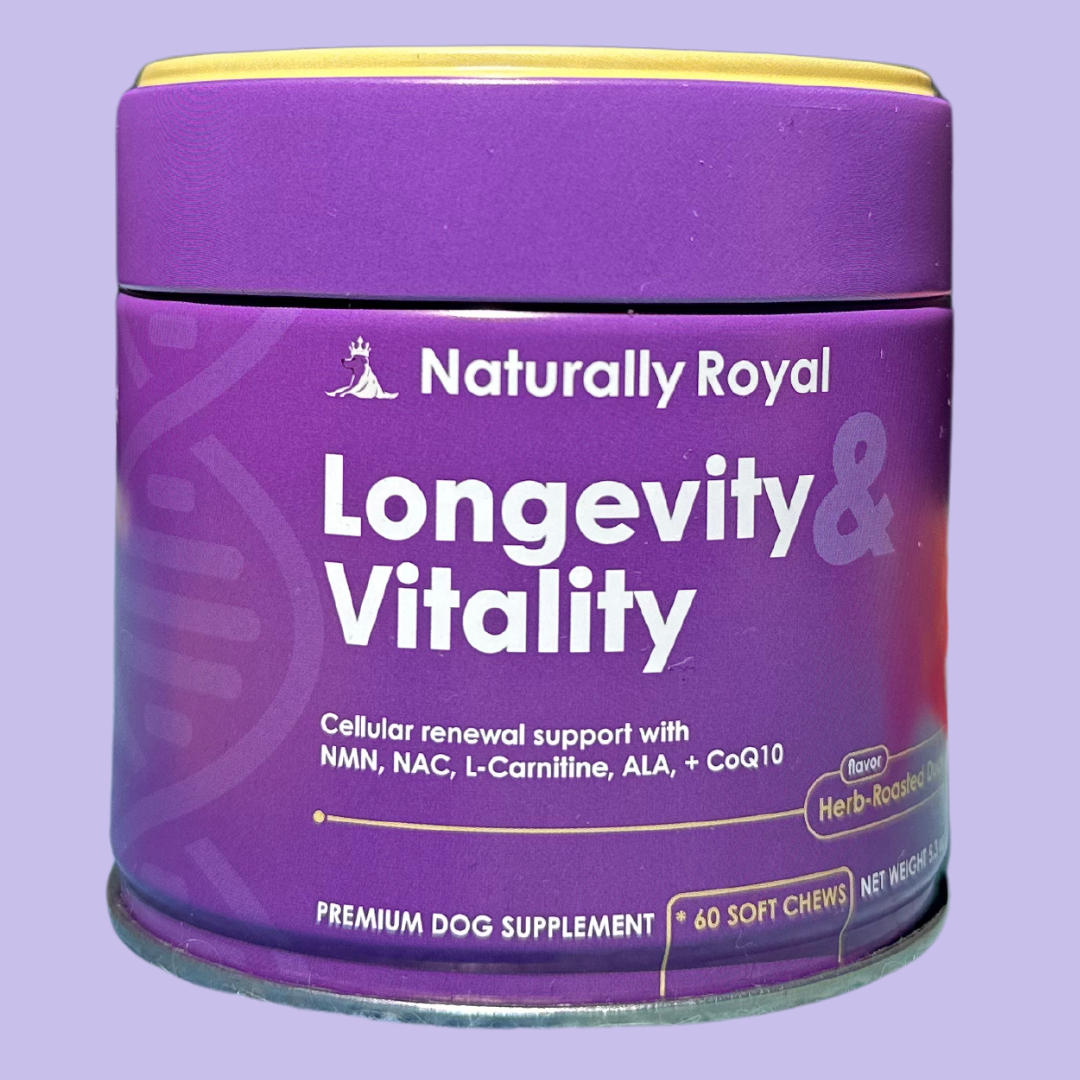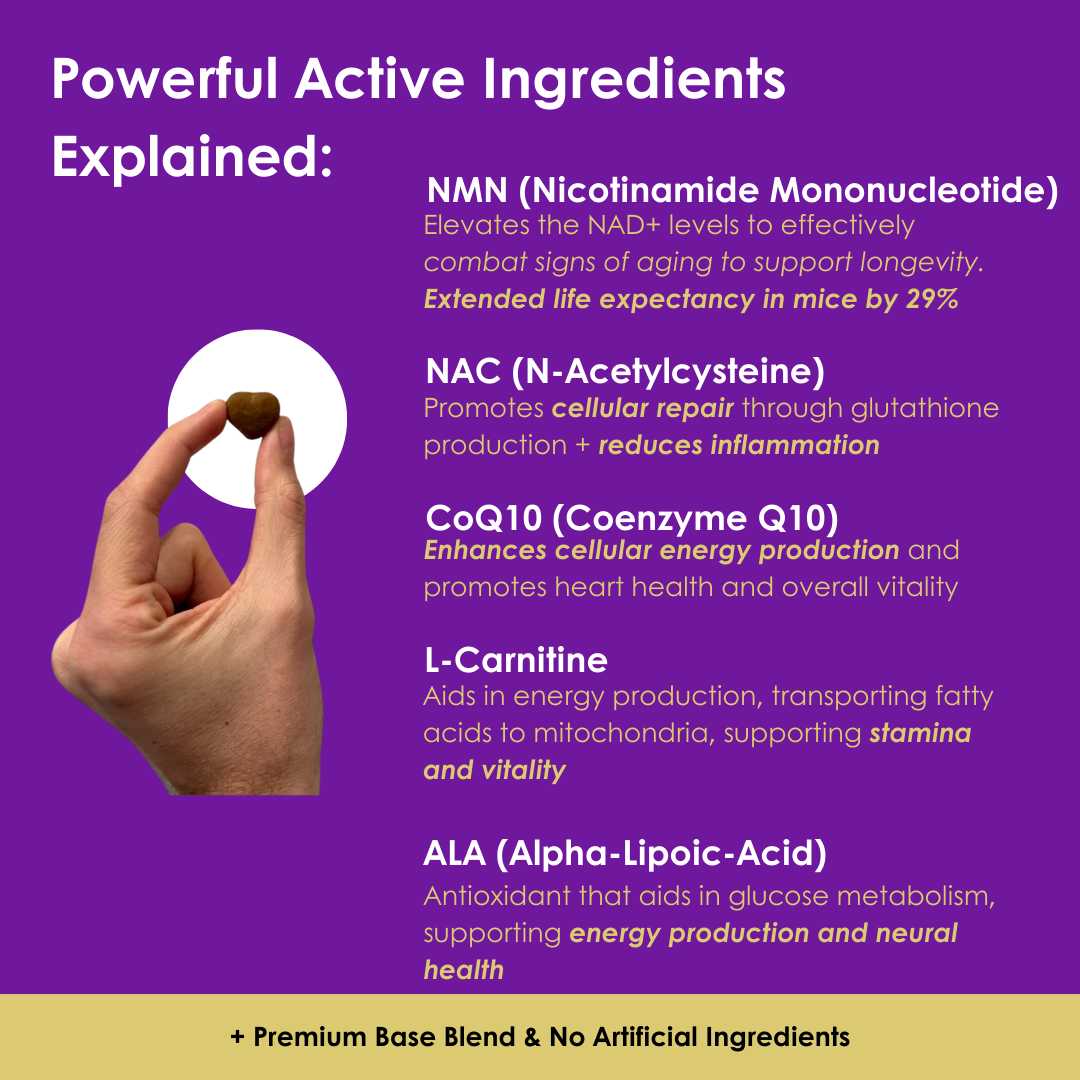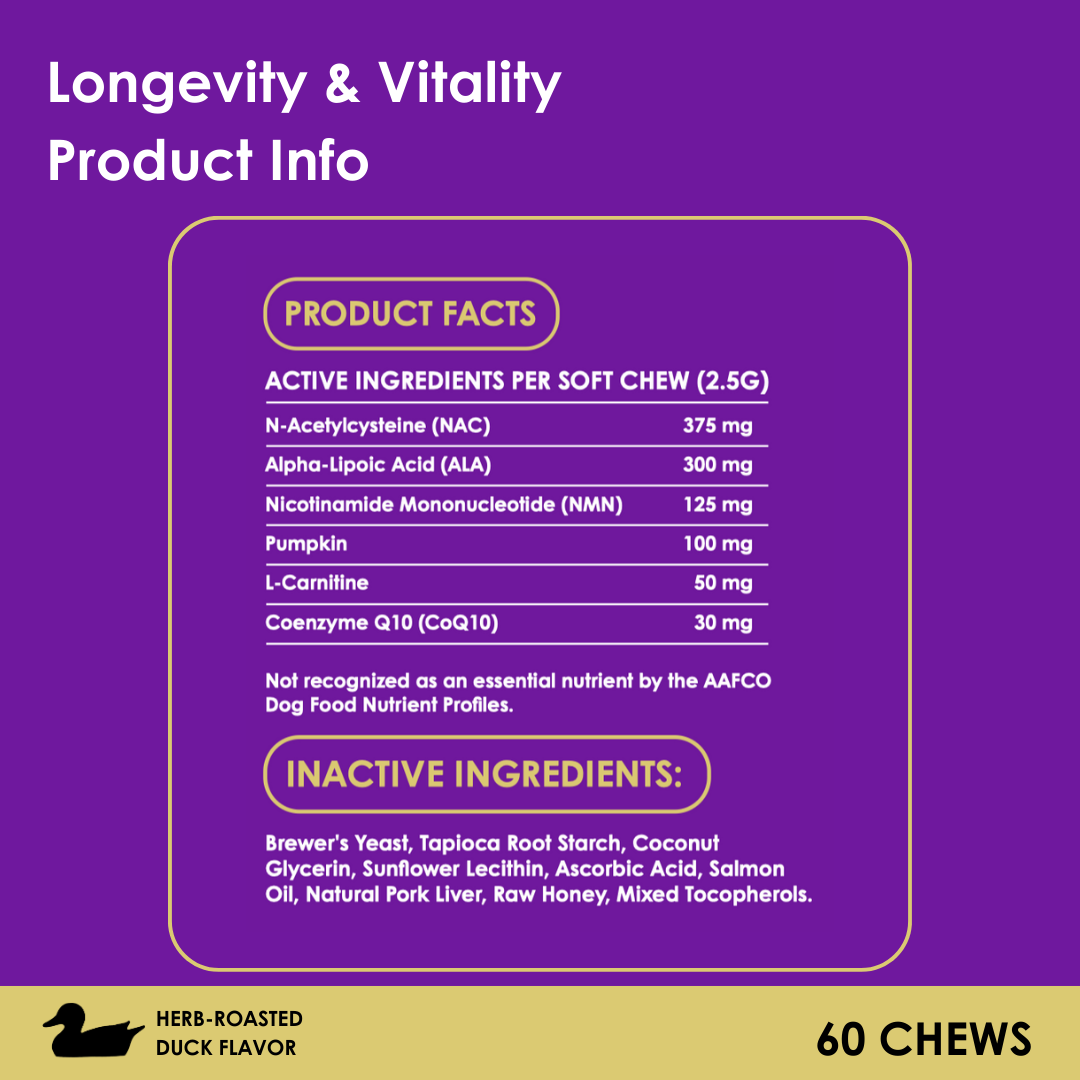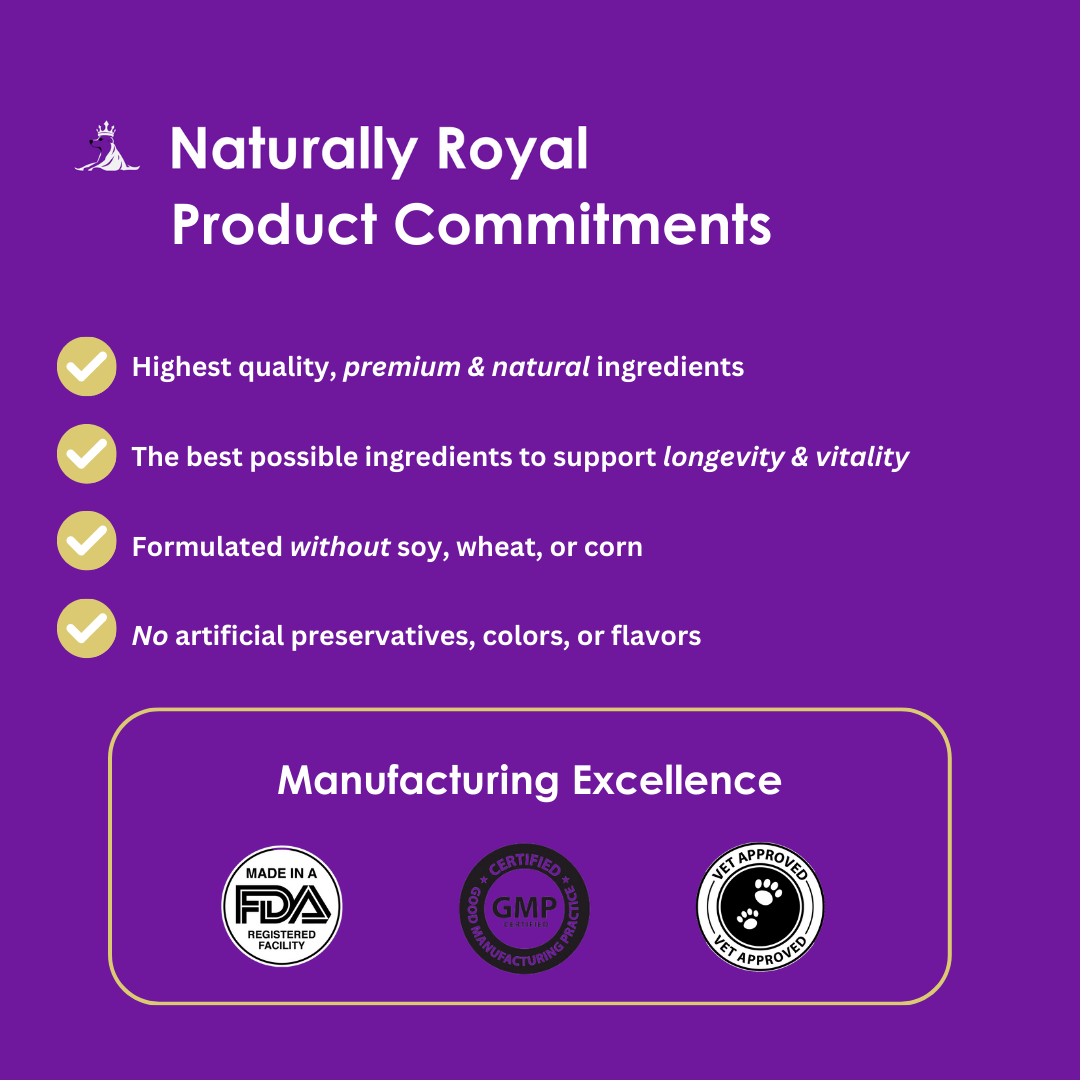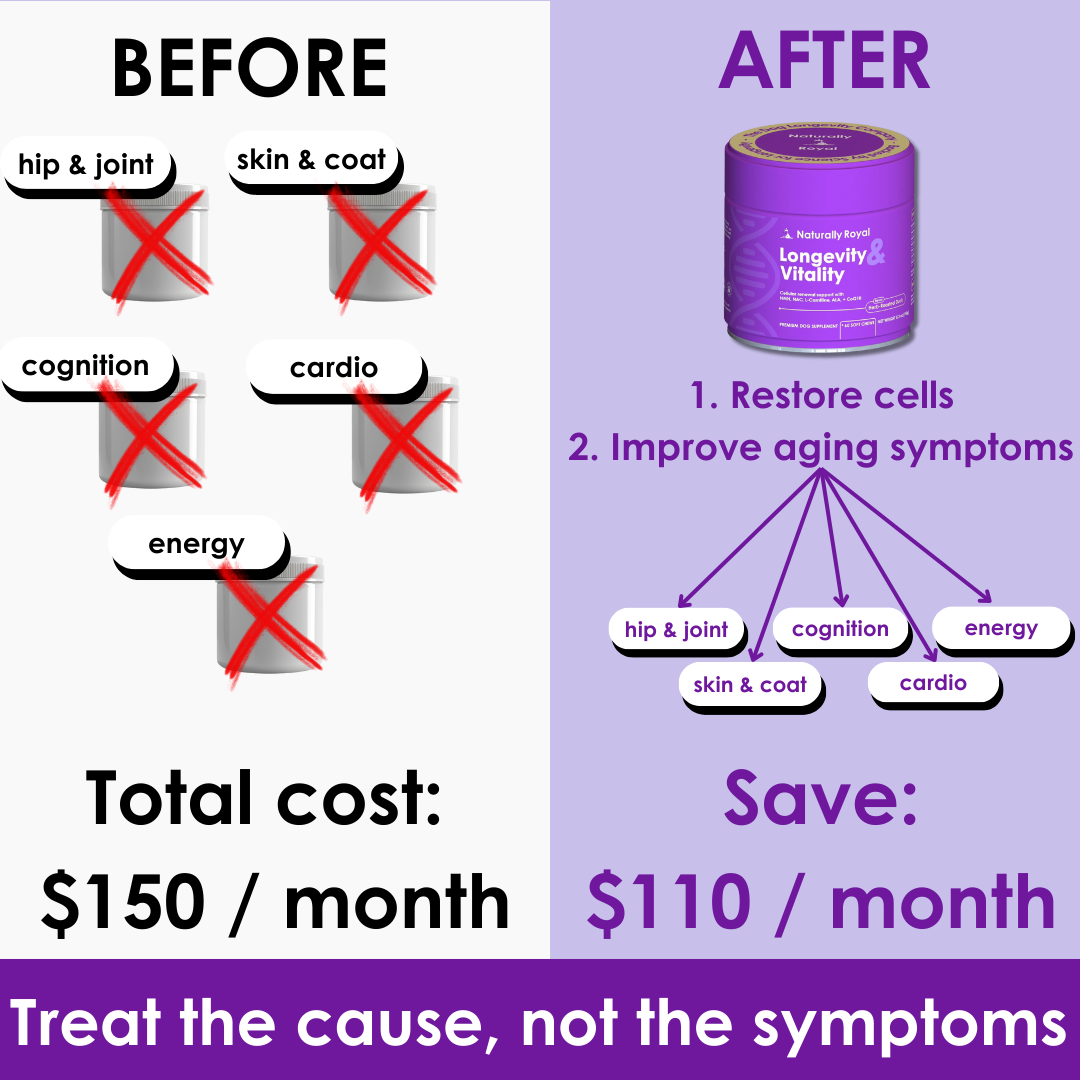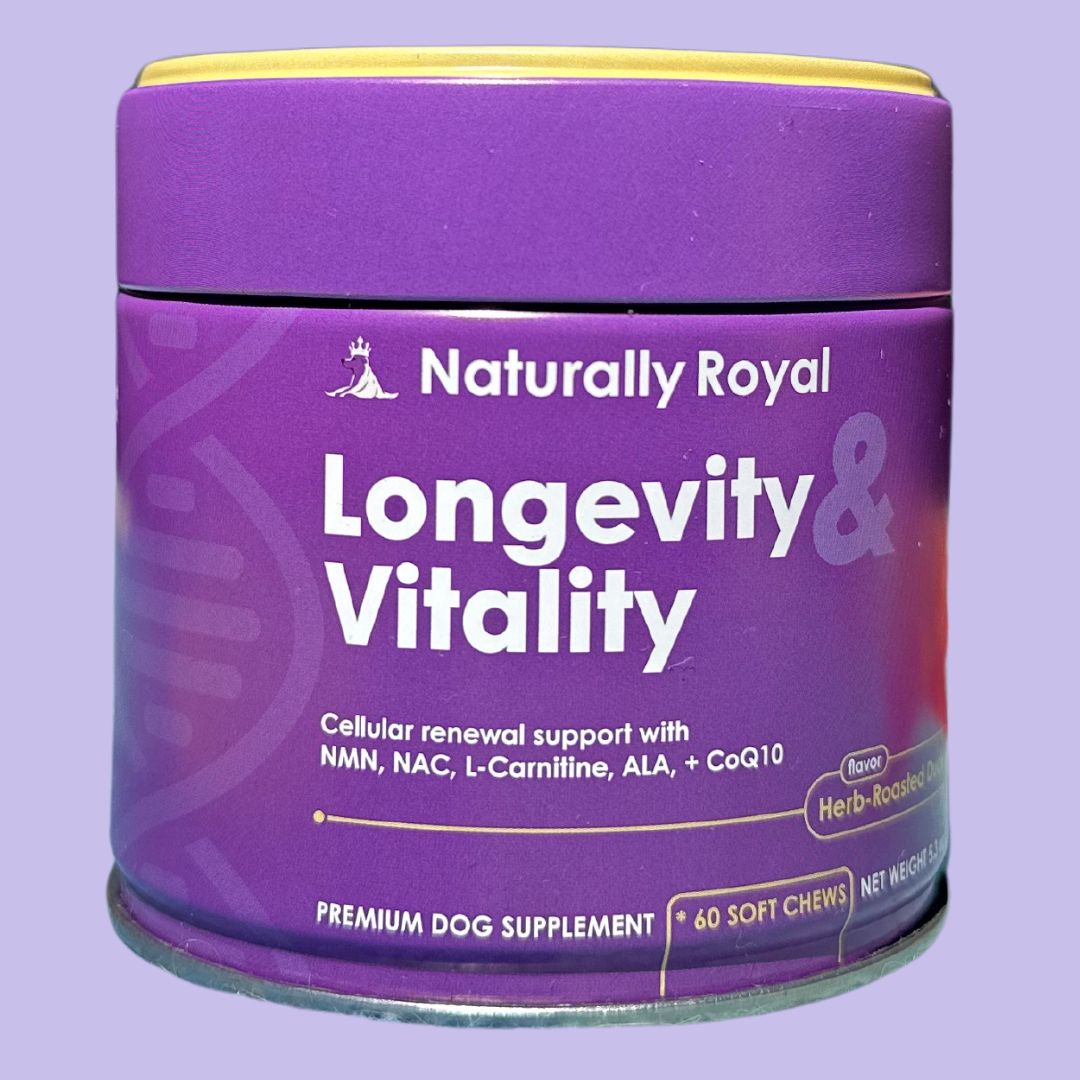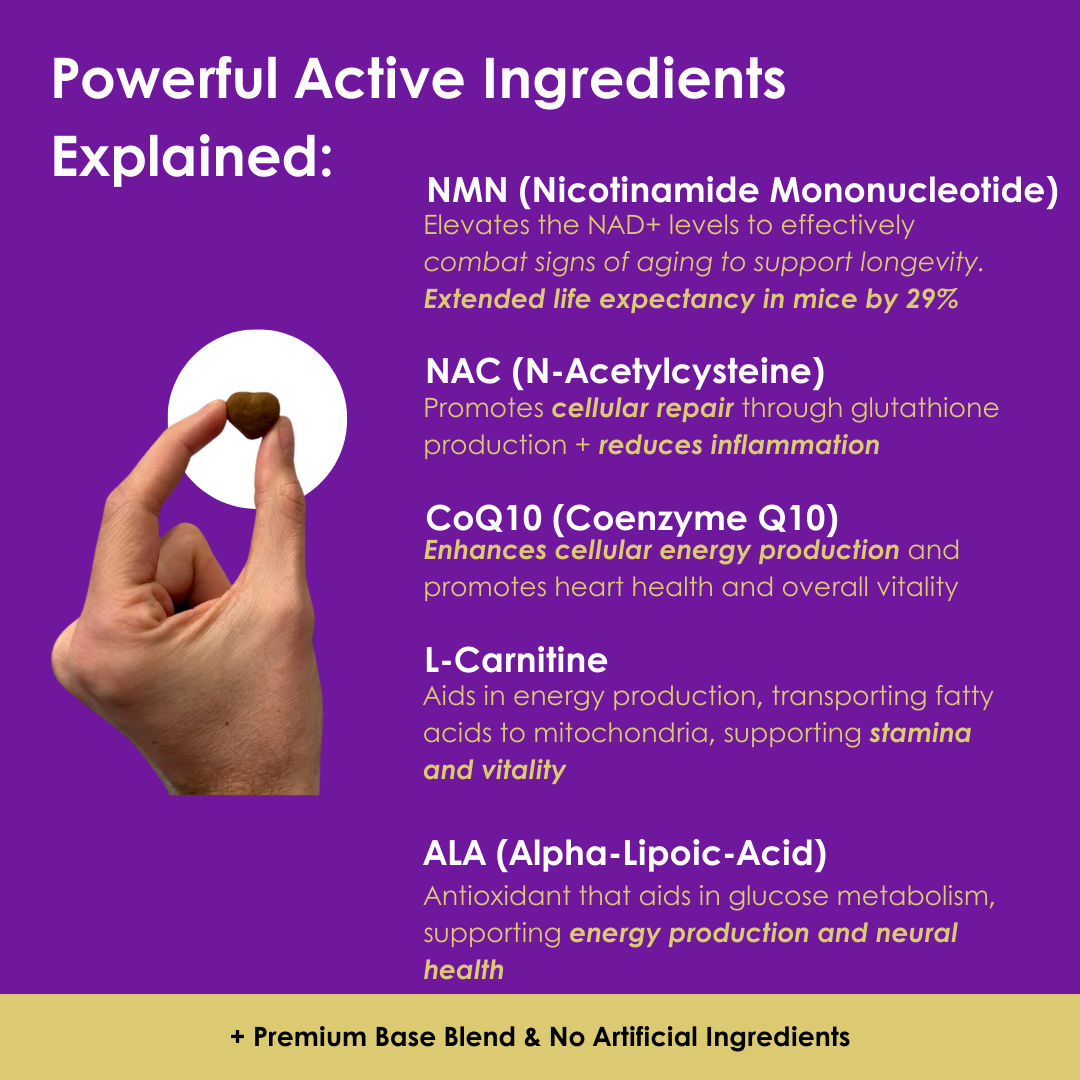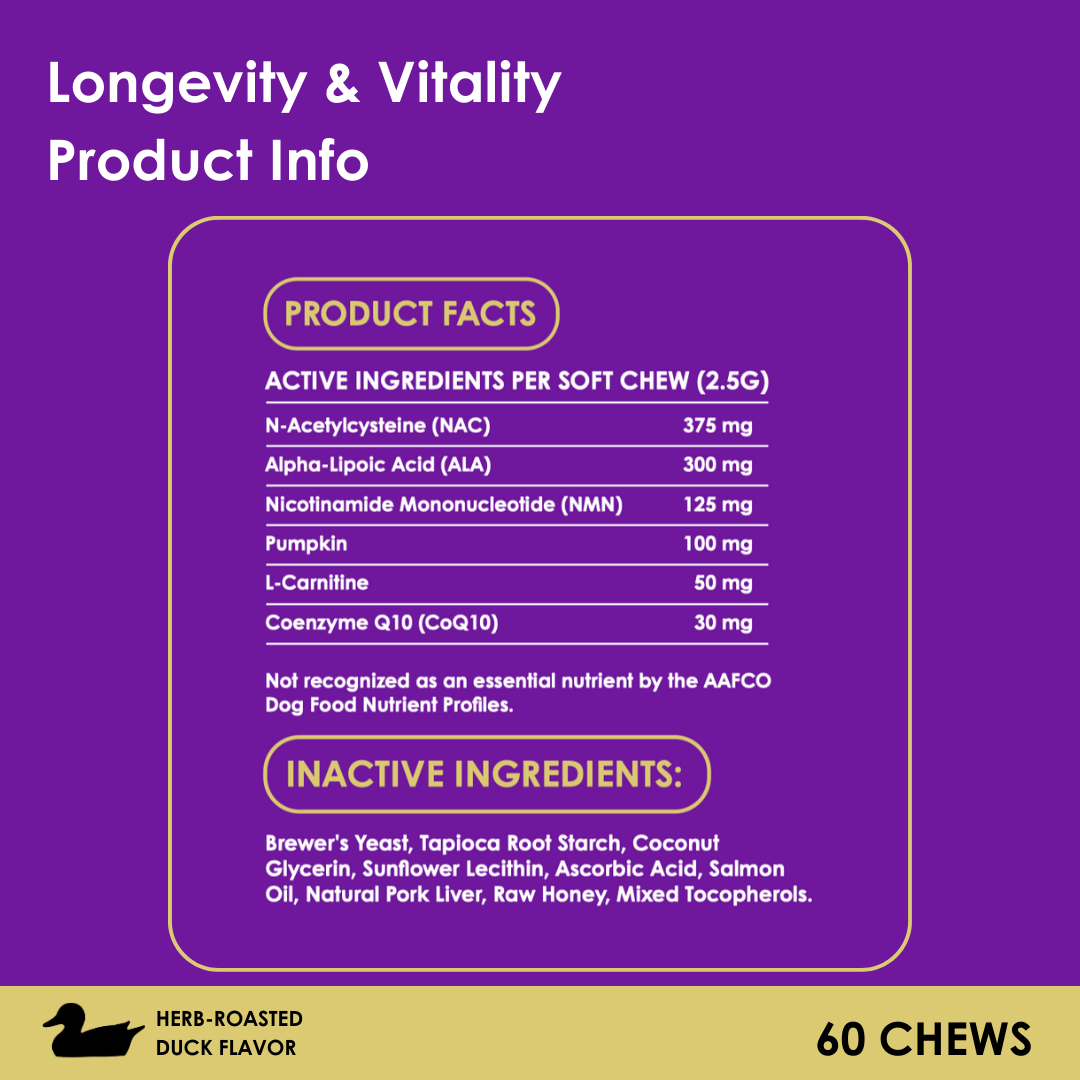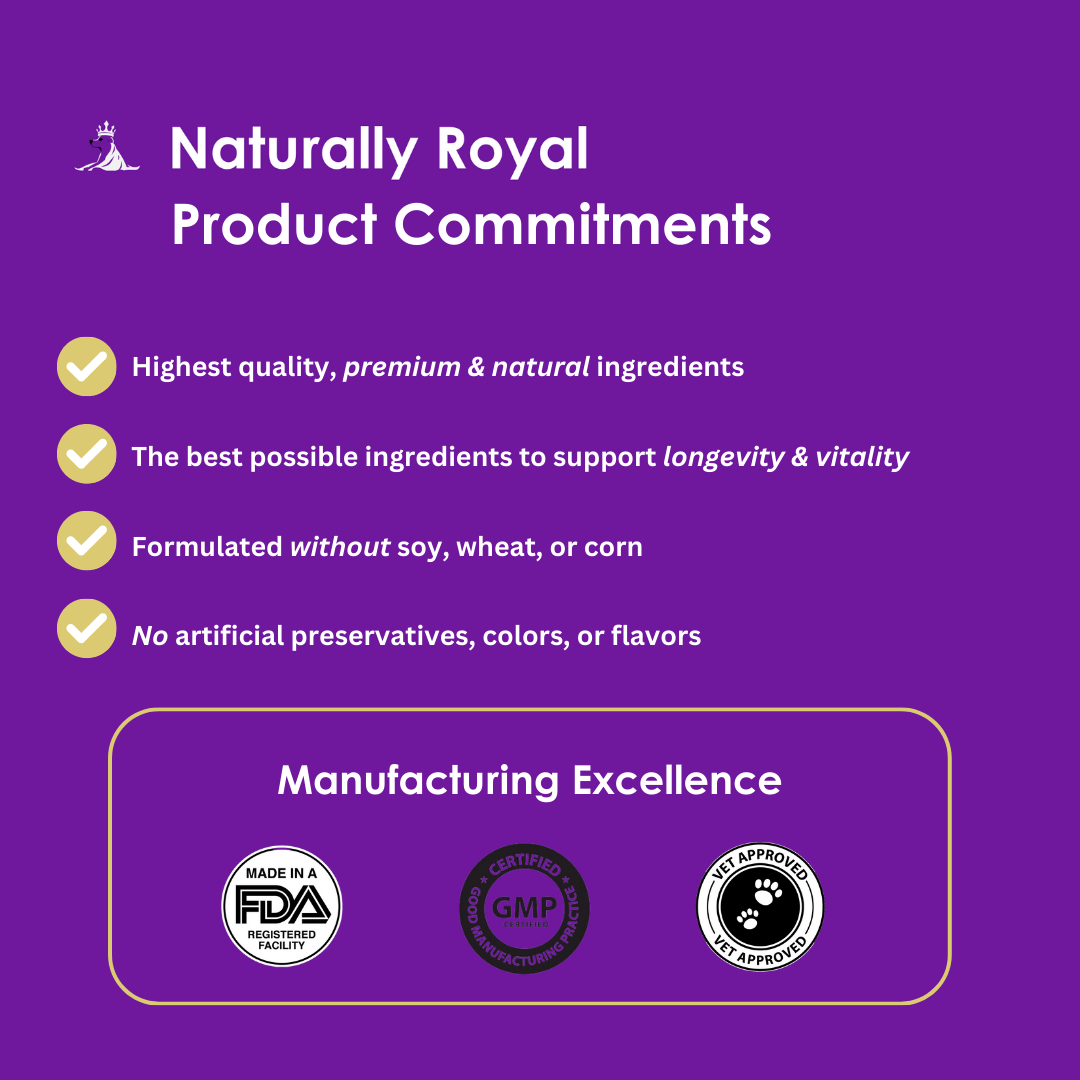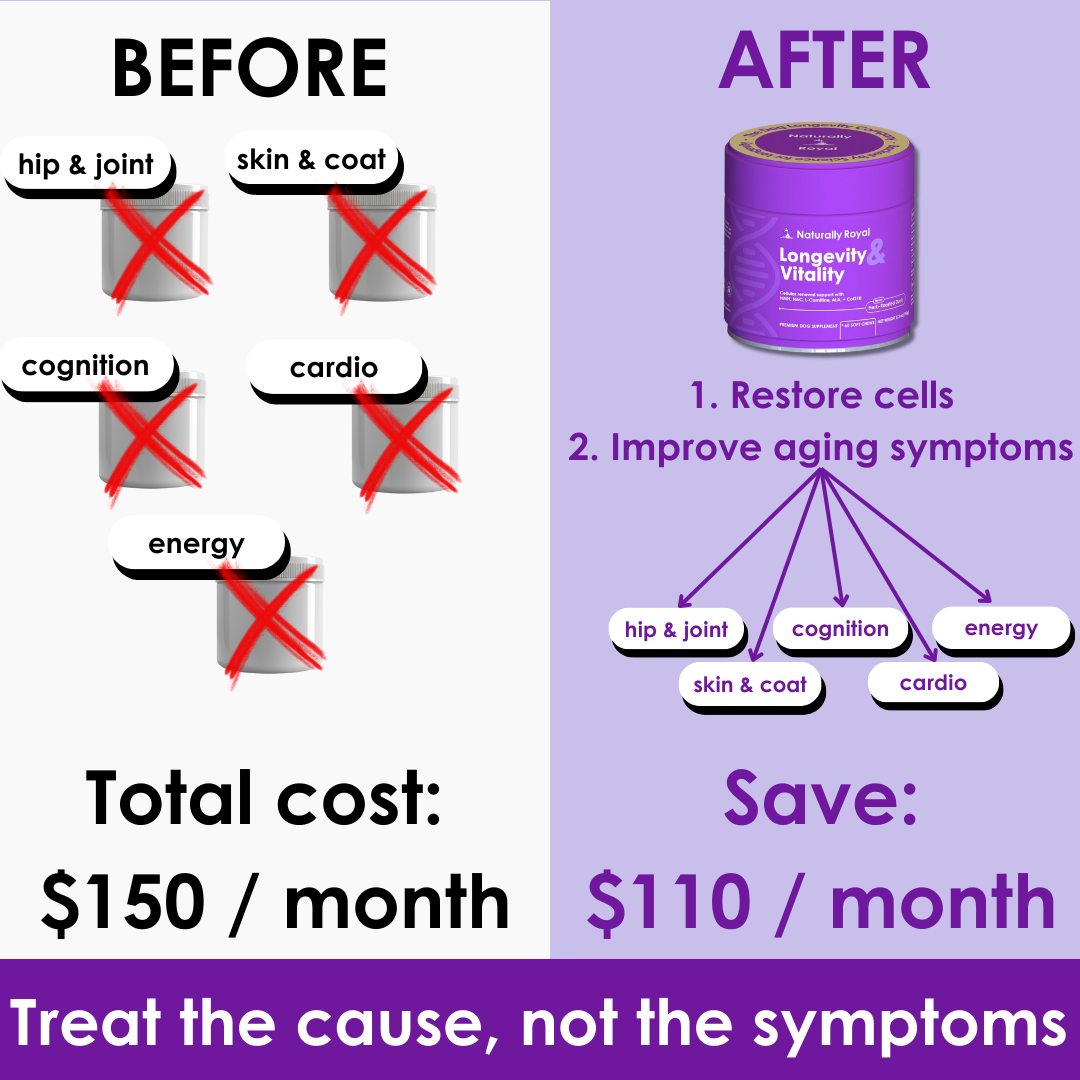Weight Loss with Probiotics
Obesity is a growing concern among dogs, particularly older pets, affecting their overall health and longevity. Recent research from the American Society for Microbiology reveals that specific probiotic strains can help reduce body fat and improve energy metabolism in obese dogs. Let’s look into how probiotics work, their benefits for overweight dogs, and the broader implications for your dog's health and lifespan:
What Are Probiotics?
Probiotics are beneficial bacteria that help maintain a healthy balance in the gut microbiome. These microorganisms support various bodily functions, including digestion, immune response, and metabolic processes.
How Probiotics Help with Weight Loss:
In a study published in Microbiology Spectrum, researchers identified two probiotic strains, Enterococcus faecium IDCC 2102 and Bifidobacterium lactis IDCC 4301, which effectively reduce body fat in obese dogs. The study focused on how these strains impact energy metabolism and gut microbiota composition in dogs fed a high-fat diet.
Key Findings:
- Reduction in Body Fat: The selected probiotic strains were shown to reduce body fat percentage even when dogs were on a high-calorie diet.
- Improved Energy Metabolism: Probiotics shifted the body's metabolic orientation towards fat consumption rather than fat accumulation, increasing overall energy metabolism.
- Lowered Inflammation: Chronic inflammation, a common consequence of obesity, was significantly reduced in dogs given these probiotics.
- Enhanced Gut Health: The probiotics increased the proportion of beneficial bacteria in the gut, which helps in defending against harmful bacteria and boosting immunity.
Impact on Longevity: Managing obesity in dogs through probiotics can have a profound impact on their overall health and lifespan:
- Prevention of Chronic Diseases: Reducing body fat and inflammation helps prevent obesity-related conditions such as diabetes, heart disease, and joint problems.
- Improved Quality of Life: Healthier weight management leads to increased mobility, better mood, and more energy, enhancing the daily quality of life for dogs.
- Sustained Health Benefits: The positive changes in gut microbiota and metabolism observed in the study are not temporary; they can persist over time, providing long-term health benefits.
Ways to Incorporate Probiotics into Your Dog’s Diet:
- Probiotic Supplements: Consult your veterinarian for recommendations on probiotic supplements specifically formulated for dogs.
- Probiotic-Enhanced Foods: Look for dog foods that include probiotics as part of their ingredients.
- Natural Sources: Certain foods, like yogurt (plain and unsweetened), can naturally boost your dog's intake of beneficial bacteria. However, always consult your vet before introducing new foods.
Conclusion:
Incorporating probiotics into your dog’s diet is a promising strategy for managing obesity and enhancing overall health and longevity. By promoting a healthy gut microbiome and improving energy metabolism, probiotics can help your dog achieve and maintain a healthy weight, reduce inflammation, and improve their quality of life. As always, consult with your veterinarian before making any changes to your dog's diet to ensure the best possible care for your furry friend.
For more detailed information, you can read the full study published by the American Society for Microbiology here.


